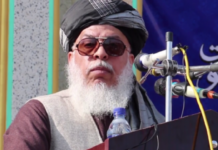
The President of the United Arab Emirates, Sheikh Khalifa bin Zayed Al Nahyan, has died aged 73.
The Ministry of Presidential Affairs expressed its condolences to the people of the UAE, Arab and Islamic nations and the world on the death of the leader of the nation.
The Ministry announced that there will be 40 days of official mourning with flags at half mast, and three days closure of ministries and official entities at the federal and local levels, and the private sector.
Sheikh Mohamed bin Zayed, Crown Prince of Abu Dhabi and Deputy Supreme Commander of the Armed Forces, said: “To God we belong and to Him we shall return. The UAE lost its righteous son, the leader of the ’empowerment stage’ and the trustee of its blessed journey. His stances, achievements, wisdom, giving, and initiatives are in every corner of the country. Khalifa bin Zayed, my brother, my mentor, and my teacher, may God have mercy on you with his vast mercy and grant you his satisfaction and paradise.”
Sheikh Khalifa, who was battling illness for several years, had long ceased having involvement in day-to-day affairs, with his brother, Crown Prince Mohammed bin Zayed, seen as the de facto ruler.
There was no immediate announcement about the successor.
Sheikh Khalifa succeeded his father and the UAE’s founder Sheikh Zayed in 2004. He suffered a stroke a decade later, keeping him largely out of public sight ever since.
Subscribe to our newsletter and stay updated on the latest news and updates from around the Muslim world!
Khalifa was born in 1948 in Abu Dhabi. He was a graduate of the Royal Military Academy Sandhurst.
When his father, Zayed, became Emir of Abu Dhabi in 1966, Khalifa was appointed the Ruler’s Representative in the Eastern Region of Abu Dhabi and Head of the Courts Department in Al Ain.
In 1969, Khalifa was nominated the Crown Prince of Abu Dhabi, and on the next day he was appointed Head of the Abu Dhabi Department of Defence. In that post, he oversaw the build up of the Abu Dhabi Defense Force, which after 1971 became the core of the UAE Armed Forces.
Following the establishment of the UAE in 1971, Khalifa assumed several positions in Abu Dhabi – Prime Minister, head of the Abu Dhabi Cabinet (under his father), Minister of Defense and Minister of Finance.
In May 1976, he became deputy commander of the UAE Armed Forces, under the President.
He also became the head of the Supreme Petroleum Council in the late 1980s which granted him wide powers in energy matters.
In March 2011, Khalifa sent the United Arab Emirates Air Force to support the military intervention in Libya against Muammar Gaddafi, alongside forces from NATO, Qatar, Sweden and Jordan.
He also pledged the full support of the UAE to the Bahraini regime in the face of pro-democracy uprising in 2011.
Later that year he was ranked as the world’s fourth-wealthiest monarch, with a fortune estimated to be worth $15 billion.





















